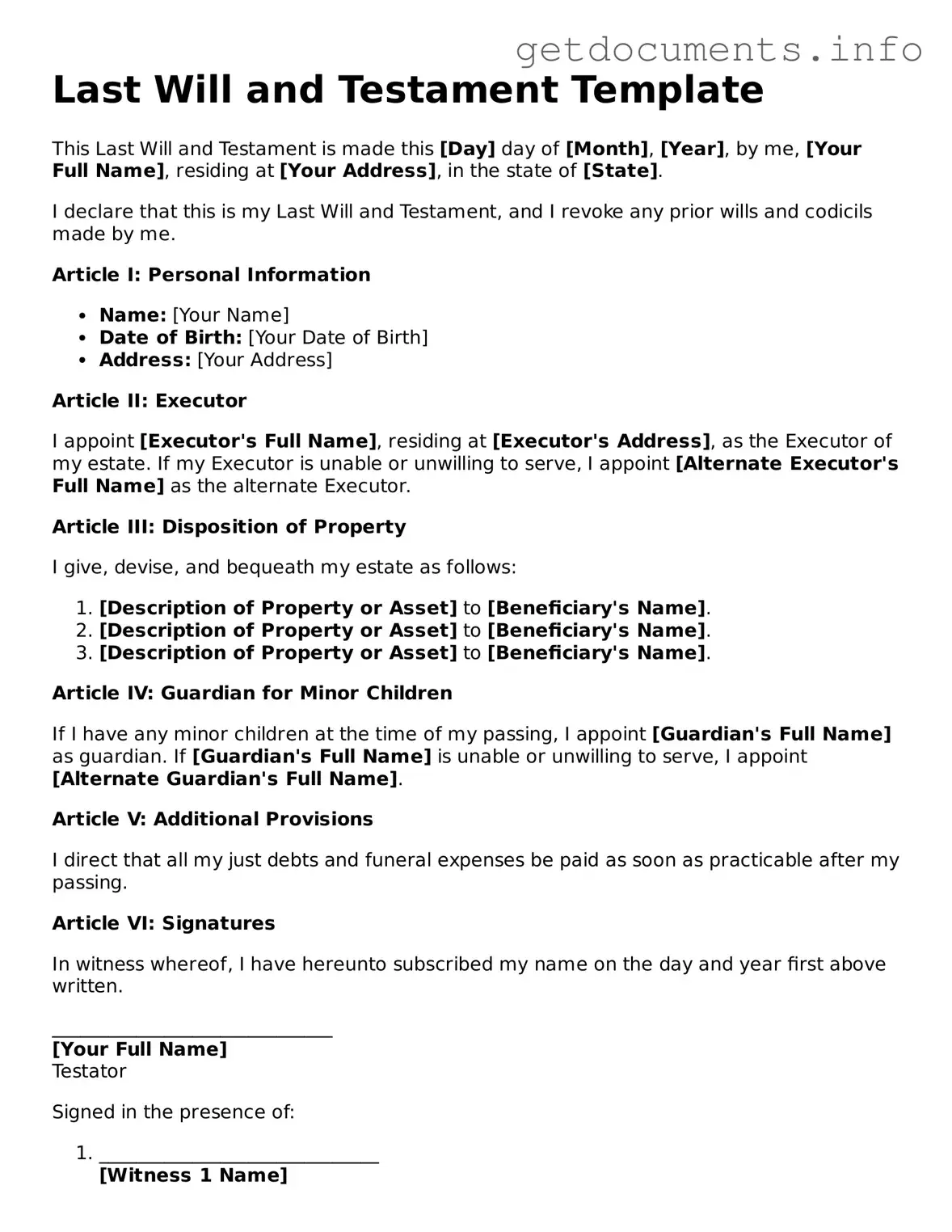Printable Last Will and Testament Document
A Last Will and Testament is a legal document that outlines how a person's assets and responsibilities should be handled after their death. This form allows individuals to express their wishes regarding the distribution of their property and the care of any dependents. Understanding this important document can help ensure that your desires are honored, so consider filling out the form by clicking the button below.
Access Last Will and Testament Editor

Printable Last Will and Testament Document
Access Last Will and Testament Editor
Got places to be? Complete the form fast
Fill out Last Will and Testament online and avoid printing or scanning.
Access Last Will and Testament Editor
or
⇩ PDF File
